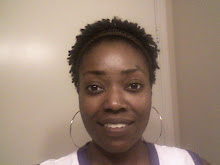". . . have patience with everything unresolved in your heart and to try to love the questions themselves as if they were locked rooms or books written in a very foreign language. Don't search for the answers, which could not be given to you now, because you would not be able to live them. And the point is to live everything. Live the questions now. Perhaps then, someday far in the future, you will gradually, without even noticing it, live your way into the answer." --Rainer Maria Rilke, in Letters to a Young Poet
Earlier this month at the start of my transition back to student (and sometimes even now), the concept of beginnings and endings weighed heavy on my mind. I'm getting back into the swing of sifting through texts that sometimes read like stereo instructions, trying to master the language of microeconomics and weigh marginal costs against benefits, etc. It overwhelms me at times. Then, in the middle of my weekly breakdown, I ask God for the answers, for Him to just put them in my mind. Now it's all starting to "click." I'm gratefully confident there will be a positive end to this graduate-study tunnel; I don't feel as if I'm drowning. It is very easy to feel hopeless, sunken, to forget that God will actually make a way for me. (I'm aware, fully aware, of the cliché of these sentences. It's aight.)
But I got to thinking about change, ending one thing and beginning another, and the many manifestations of it in my own life. How it might have sounded at different times: cuss words, slamming doors, pounds on my chest, prideful declarations, the drip of water through an afro, the buzz of a tattoo needle. What it has looked like: a divorce, a shaved head, a college degree, a move from my hometown, a slow crawl from dangerous love, a change of careers, and of course, a baptism. How it's been ushered in with a flipped finger, restrained tears, heavy regret, unbecoming indignities, and eleventh-hour epiphanies.
I've had these transitions many times, just in different forms. Nothing is ever new. And nothing truly ends. Life just morphs a little. Through the "ending" of one thing, we create a passageway, a birth canal, for the beginning of something else. So each time my circumstances change—gracefully or not so much—I create a pathway to make real the emulation of my perfected vision. Be ye perfect . . . yes! Closer, closer, and like Rilke I take the disappointments and/or lessons of each ending and make them work for me in the transition and in the new.
And of course these endings repeat themselves: No relationship will be perfect, and therein lies the test to live in the process and accept the ups and downs. Education is life long. I must have eyes to see there is always something I can learn. Careers evolve and affect new careers. Remember to never burn bridges. But the challenge for me is how will I carry myself in the new circumstance? Each time in the passageway I attempt to shake off a bit more self-deception, laziness, and hopelessness, so that I am able to live the answers that I find. I then determine to usher in a foundation, one from which I can't fall. A knowledge of what works and what doesn't. An ability to handle anger, sorrow, and happiness with emotional maturity. Humility to work on improvement. Self-examination. A closeness to God that keeps my heart beating optimism. 'Cause looking back leaves me like
